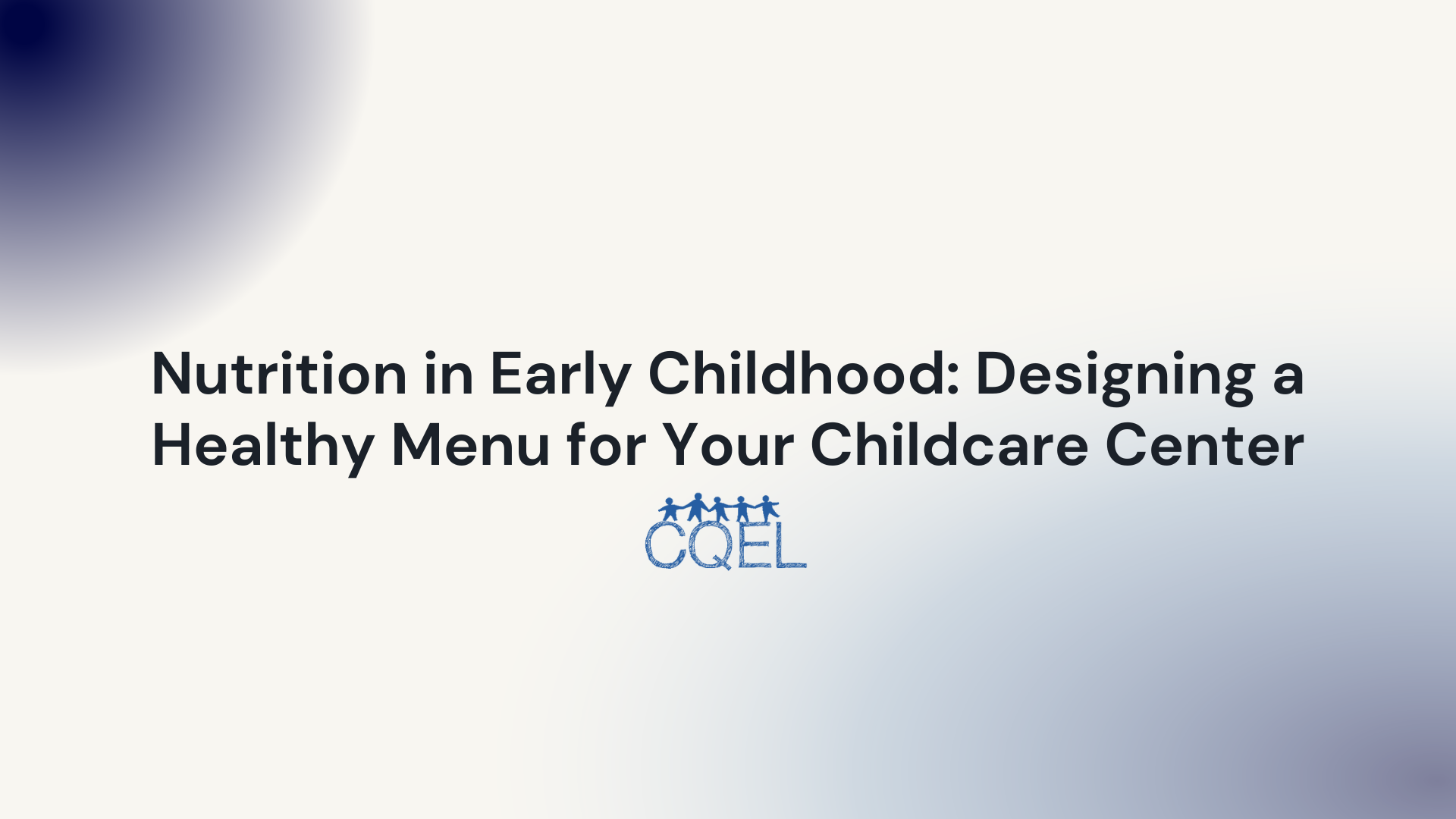Nutrition in Early Childhood: Designing a Healthy Menu for Your Childcare Center
For childcare providers, understanding the basics of early childhood nutrition and knowing how to design a balanced, diverse menu for their centers is essential.

Healthy nutrition is a cornerstone of early childhood development, influencing not only physical growth but cognitive development as well. For childcare providers, understanding the basics of early childhood nutrition and knowing how to design a balanced, diverse menu for their centers is essential. Here we will delve into the fundamental aspects of nutrition for young children, offering insights and resources to aid aspiring early education providers in California.
Understanding the Basics of Nutrition
Children's dietary needs differ significantly from those of adults, with varying nutritional requirements at different stages of development. To cater to these needs, a grasp of the food groups and their role in a balanced diet is essential. One excellent resource to assist you is the MyPlate for Kids guide, which provides an easy-to-understand representation of how different food groups should contribute to a child's plate.
The Power of a Diverse Diet
The benefits of a diverse food selection in children's diets are manifold. A variety of foods not only ensures balanced nutrition but also broadens children's palates, exposing them to different tastes and textures. Creating an environment that makes trying new foods fun and exciting can have a lasting impact on a child's relationship with food. Visit the Variety in a Child's Diet page for more tips on introducing diversity into your center's meals.
Meal Planning for Balance and Variety
Meal planning, while perhaps seeming a daunting task, can be an invaluable tool in ensuring nutritional balance and variety. By planning meals in advance, you can better incorporate all food groups, control portion sizes, and accommodate specific dietary needs. For an extensive collection of tips and sample meal plans, check out the MyPlate Kitchen.
Designing a Healthy Menu
When designing a healthy menu for your childcare center, incorporating a variety of food groups is key. The Dietary Guidelines provides a wealth of information on each food group, with examples of healthy food choices. Understanding appropriate portion sizes for young children and establishing a meal and snack schedule that maintains their energy and satiety levels throughout the day is equally important. To learn more about age-appropriate portion sizes, the NHS guide on Portion Sizes for Children is a highly useful resource.
Addressing Dietary Restrictions and Allergies
Meeting the needs of children with dietary restrictions or allergies can be challenging, but it is an essential aspect of operating a childcare center. By understanding common allergies and having substitution strategies in place, you can ensure that all children in your care have access to balanced, nutritious meals. Food Allergy Research & Education offers a wealth of knowledge on this topic, including allergen-free menu suggestions.
Encouraging Healthy Eating Habits
Establishing a positive mealtime environment and implementing strategies to encourage healthy eating habits are equally as vital as the menu itself. Encouraging children to eat a variety of foods, modeling healthy eating behaviors, and making mealtime a positive, interactive experience can lay the foundation for a lifetime of healthy eating habits. Visit Healthy Eating Habits for more guidance.
Collaborating with Parents on Child Nutrition
Parents are invaluable partners in a child's nutritional journey. Open communication about your center's nutritional approach and addressing any concerns or special dietary needs is essential. For tips on effective parent-teacher collaboration on nutrition, visit Action for Healthy Kids.
California's Nutrition Regulations and Resources
Finally, it's crucial to understand California's specific nutrition regulations for childcare centers. Additionally, local resources are available to support you in implementing nutritional best practices in your center. Visit California Child Nutrition Information for relevant guidelines and resources.
In conclusion, providing balanced, nutritious meals in your childcare center is a vital part of promoting healthy growth and development in children. By embracing the principles and resources outlined in this post, you can play a key role in fostering a lifetime of healthy eating habits for the children in your care. So let's strive to make every mealtime a nourishing, enjoyable experience for our little ones. After all, good nutrition is the bedrock of a healthy future.
